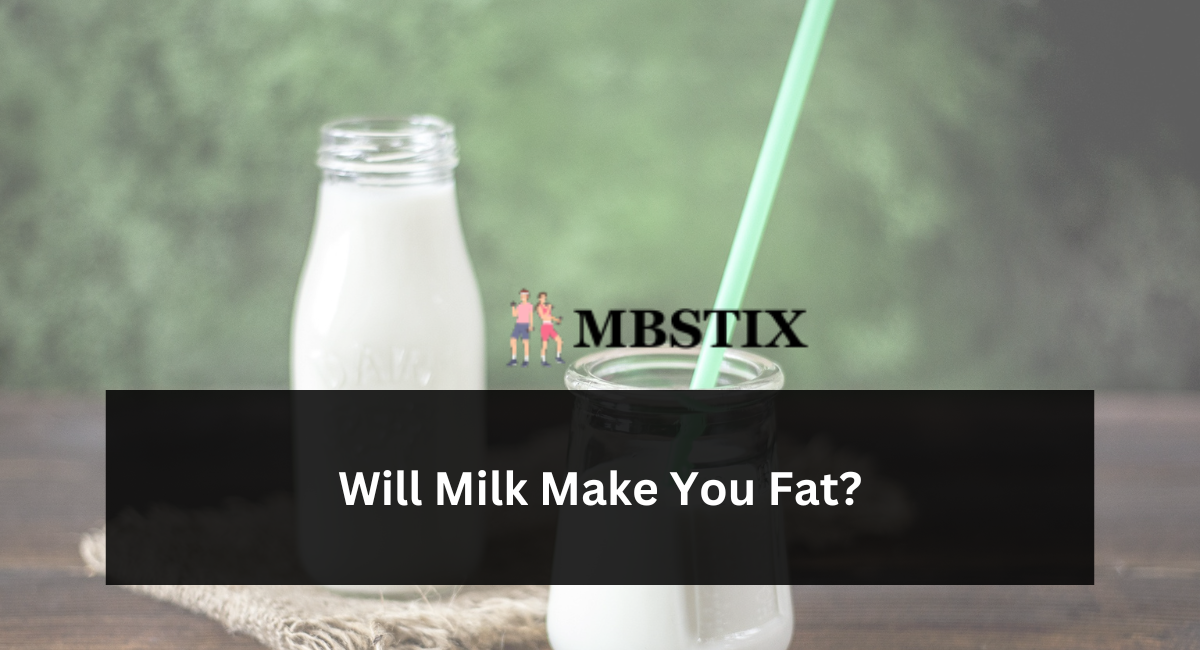If you adhere to a healthy and balanced diet, drinking milk will not lead to weight gain if taken within your daily calorie limits. There are various alternatives for those unable to tolerate dairy due to lactose intolerance or other dietary restrictions – organic varieties of low-fat, whole-fat, and even flavored milk are all available today!
It is a Good source of protein
Milk is an excellent source of protein, an essential nutrient for building muscle and increasing metabolism. Milk also contains vital minerals and vitamins such as zinc, magnesium, calcium, and B12. Milk won’t make you fat; consume it in moderation for maximum benefit!
Milk can be an invaluable addition to your diet when gaining weight, particularly if you want muscle instead of fat. Milk’s whey and casein proteins may help build lean tissue while simultaneously satisfying hunger pangs – ensuring you build muscle rather than fat!
It can be added to numerous dishes or smoothies or enjoyed directly as an icy glass of cool refreshment! Mix some into oatmeal, soup, or eggs to boost calories and protein intake!
One misconception regarding dairy products is that they contain too much fat and are unhealthy. Yet these fats have been shown to help lower obesity risks, osteoporosis risk factors, type 2 diabetes risks, and heart disease risks.
Milk also provides essential vitamins and minerals such as calcium and potassium that are critical in bone and cardiovascular health.
Adults typically require 0.8 grams of high-quality protein per kilogram (2.2lb) of body weight.
Milk is an excellent source of this essential nutrient; low-fat or skim milk should ideally be chosen to minimize caloric and fat consumption.
It is a Good Source of Calcium
Milk is an excellent source of calcium, an essential nutrient for bone health and other bodily processes. Milk also provides protein and other essential vitamins and minerals such as potassium and vitamin D.
Adults typically require 1,000 milligrams daily of calcium–roughly equivalent to three 8-ounce glasses, and green leafy vegetables, which are rich sources.
Milk is typically fortified with 2,000 international units of vitamin A and 400 international units of vitamin D per quart and small amounts of saturated fat, which increases cholesterol levels and the risk of heart disease. If you wish to avoid these adverse side effects, choosing low-fat or nonfat milk would be optimal.
Milk offers many health advantages and may help you lose or maintain a healthy weight by filling you up and satisfying hunger cues, making it easier to stick with healthy diet plans. Furthermore, its calcium content can prevent osteoporosis and other chronic diseases, but too much milk consumption could lead to high cholesterol levels and obesity.
It is a Good Source of Potassium
Milk is an excellent source of potassium, an essential mineral for maintaining proper body fluid balance, muscle functionality, and heart rhythm.
Milk also offers other essential nutrients like protein, calcium, and vitamin D, which promote bone health; however, individuals should ensure they consume sufficient quantities from other food sources to meet their nutrient requirements.
Milk’s combination of carbohydrates, proteins, and fat makes it very filling and satisfying, which may make weight loss easier if you drink a glass after each meal. Doing this also helps ensure you stick with healthy eating patterns!
Skim milk contains 2 grams of potassium per cup; 2% milk has 5 grams, and whole (3.25% fat) milk (8 grams). If you have difficulty getting enough potassium in your diet, speak to your physician about including fortified milk in your daily menu.
Other sources of potassium-rich foods are fish, shellfish, and legumes. A medium-baked sweet potato with skin on it contains more than 500 milligrams, while white beans, adzuki beans, and Great Northern beans provide over 600 milligrams per half-cup serving of potassium.
Leafy vegetables such as spinach, Swiss chard, and beet greens can also offer high amounts of this mineral.
It is a Good Source of Vitamin B12
Milk can be an excellent source of Vitamin B12 for those who can digest it; one cup provides 46% of your recommended intake. Milk also provides calcium, phosphorus, potassium, and protein, which may help protect bones against osteoporosis while supporting weight management if you can tolerate dairy products. But if dairy doesn’t agree with you, plenty of other choices are available as an alternative source.
Egg yolks are an easy-to-absorb source of vitamin B12, making them an excellent addition to cyanocobalamin-fortified milk products. Or add a scoop of whey protein powder into water or your smoothie for an instant energy boost; its abundance of the amino acid tyrosine stimulates metabolism and prevents fat storage.
Milk is an excellent source of protein, but to get maximum nutrition, it is best to opt for low-fat or nonfat versions with reduced levels of saturated fats. A glass of whole milk contains 146 calories and 8 grams of fat, while 1% or skim milk only has 122 calories and 3 grams.
Studies on milk have produced mixed results: some indicate it has a beneficial impact on cardiovascular disease, while others demonstrate neutral or even adverse effects.
Results may depend on comparison to other foods; for instance, some compare it with high-saturated-fat meats, which raise cholesterol levels and increase the risk of heart disease.
Conclusion
In conclusion, whether milk will make you fat is nuanced and depends on various factors. Milk is a nutrient-rich beverage that provides essential nutrients like calcium, vitamin D, and protein.
However, like any food or drink, the overall impact on weight depends on the context of your diet and lifestyle.
The calorie content in milk should be considered in the context of your daily caloric needs and the rest of your diet.
Consuming milk as part of a well-balanced and calorie-appropriate diet is unlikely to lead to weight gain. The protein and nutrients in milk can contribute to a feeling of fullness and support overall health.

